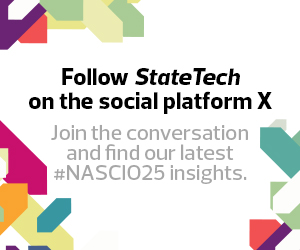AI Use Cases Are Multiplying
Based on recent research with Accenture and the National Association of State Chief Information Officers, we know that the most common applications in the early stages of scaling are virtual agents and chatbots; public information and FAQs; document generation and personalization; surveys and feedback analysis; training and digital literacy; and website translation. To scale these initiatives, states say they must take a phased approach, improve data quality and develop policies and governance.
A compelling tool on the horizon is agentic AI, which is capable of proactively managing citizen interactions and automating multistep processes. Imagine an AI-powered agent assisting a citizen with an unemployment benefits application. The AI could identify a stalled claim due to missing documentation, notify the applicant, guide them through document submission and follow up automatically. It could also validate the submission, escalate if necessary and summarize the case for human review.
Such automation could significantly enhance efficiency while preserving a human touch where needed, but we are still in the early days. Our research shows that only 2% of states are currently implementing agentic AI in targeted areas of government service delivery.
DIVE DEEPER: Access free, exclusive AI insights.
AI Concerns and Challenges
As states consider external-facing applications of GenAI, they must address the challenges. State CIOs tell us their primary concerns are related to the accuracy of AI-generated outputs, data security and privacy, and lack of training or support. State governments are custodians of vast amounts of sensitive citizen data, and they must ensure this data is handled ethically and securely.
As recent NASCIO reports underscore, AI outcomes are only as good as the data that informs them, making data governance and literacy essential elements of GenAI readiness.
Recognizing both the promise and the peril of GenAI, states are taking a measured, strategic approach. According to NASCIO’s 2024 state CIO survey, over 70% of respondents say they have implemented policies and guidelines for GenAI use; 68% have established guidelines related to responsible use, guardrails, security and ethics. This deliberate pace reflects the dual responsibility of enabling innovation while protecting public trust.
SUBSCRIBE: Sign up for the StateTech newsletter for weekly updates.













